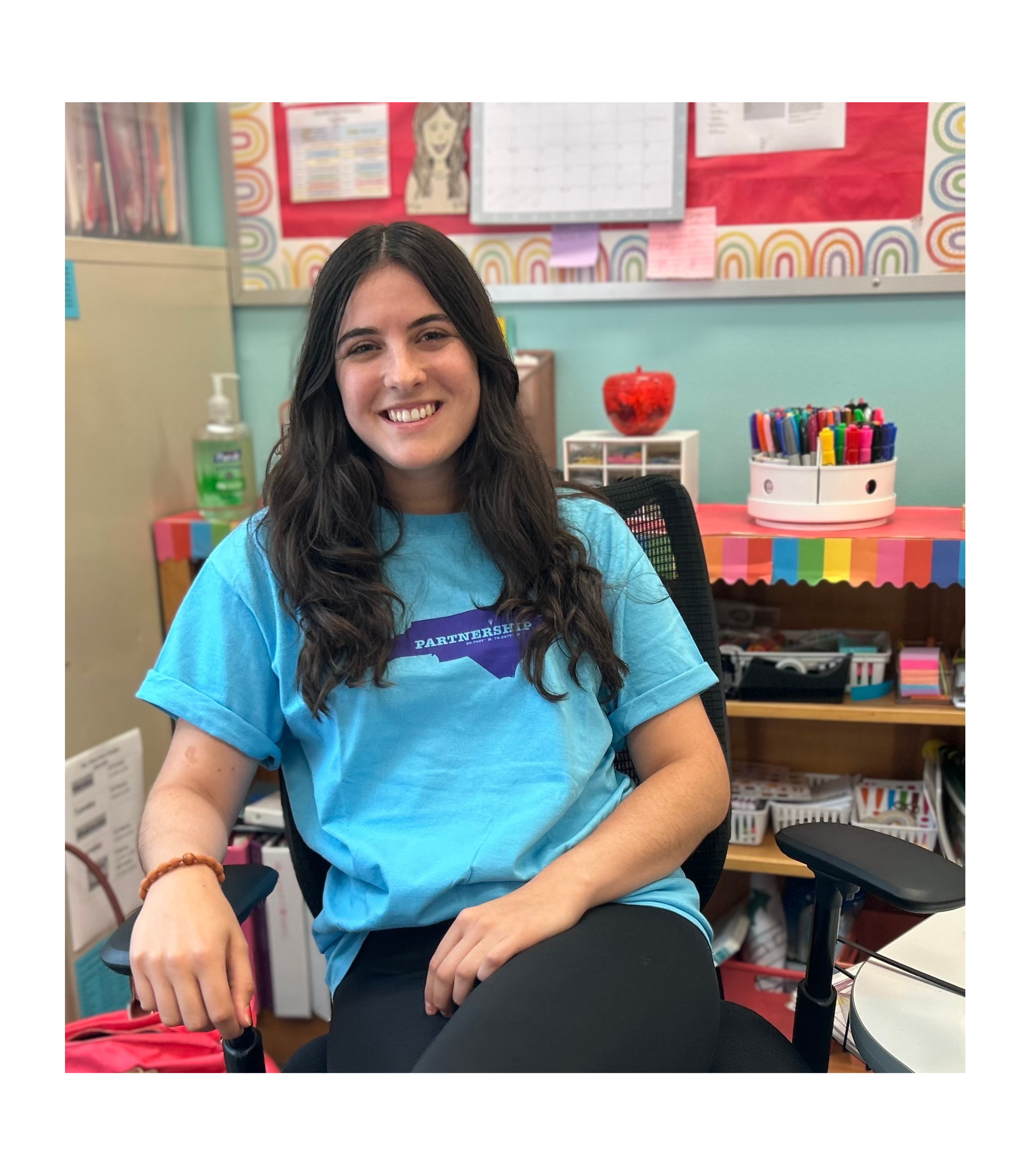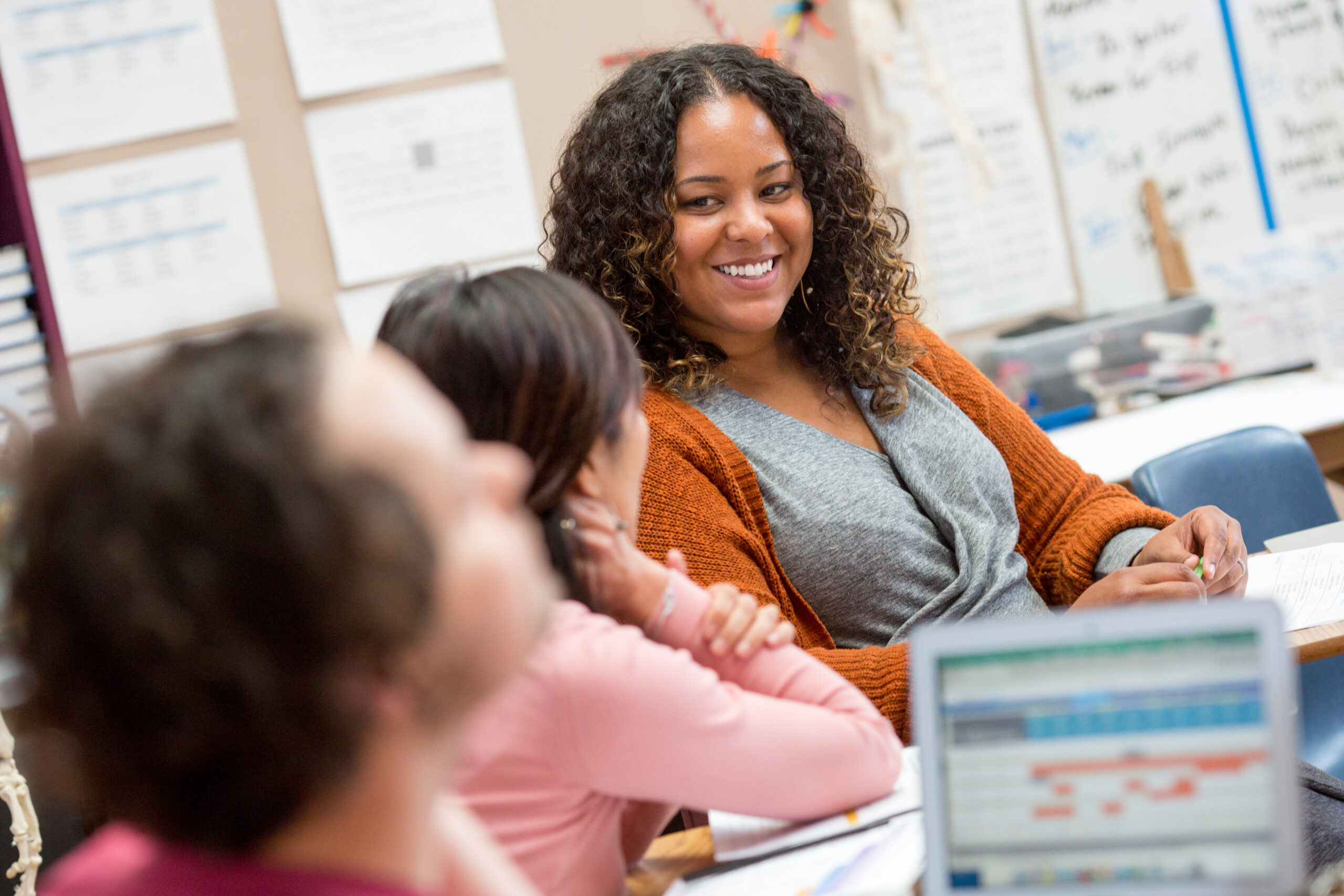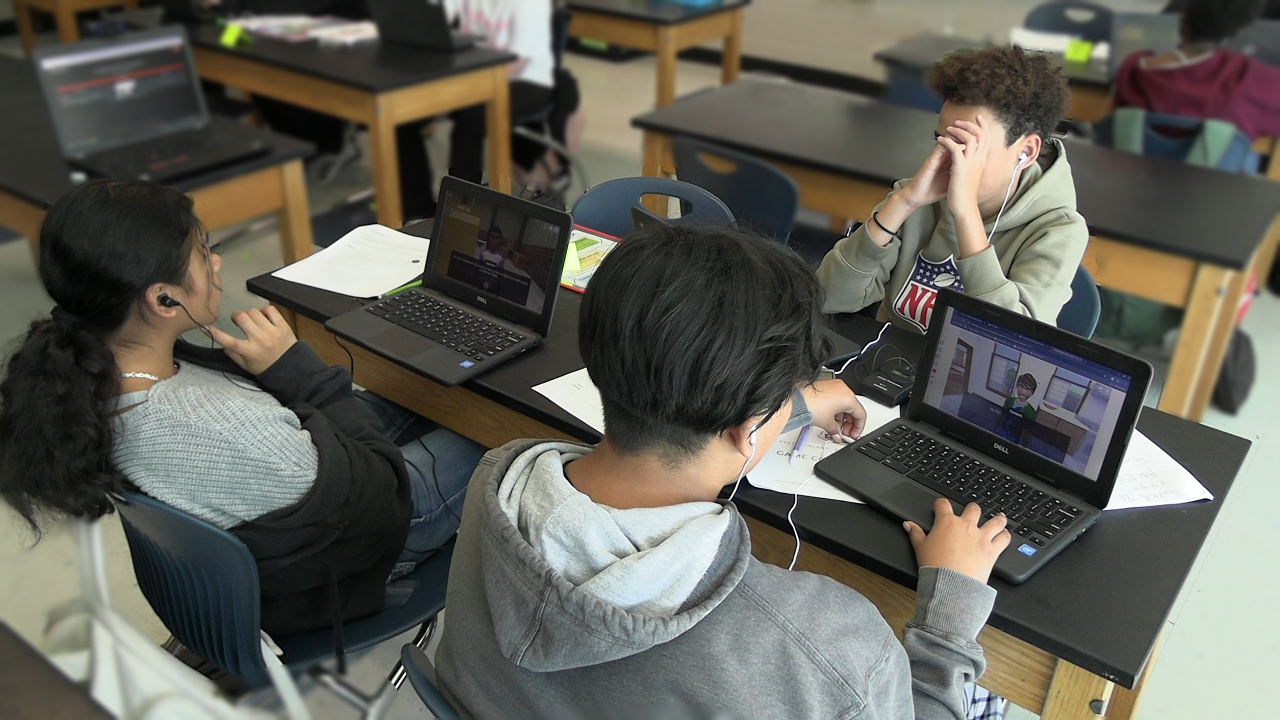Author’s Note: Ms. Moffatt is a participant in the Friday Institute and Wake County Public School System’s Making Computer Science Stick initiative to increase elementary teachers’ capacity to integrate computer science into the curriculum.
Sophia Moffatt, an artist and self-professed creative, almost missed her calling as an educator when she entered North Carolina State University in the fall of 2018 majoring in architecture. The middle of five children, she always cared for her younger siblings, and when playing school as a child, of course, she was the teacher. She says she has learned to trust her gut, and although a bit fearful of what her adviser would say, she knew that she had to change her academic focus during her first semester. Surprised by the encouragement from her adviser, who told her, “If you don’t wake up happy to be doing what you’re doing, then you shouldn’t be doing it,” Sophia changed her major to elementary education, added a certification in special education and has never looked back.
The Pennsylvania native was planning to return home to teach when she received a message about a kindergarten position at Wake County’s Partnership Magnet Elementary School, the only school she’d considered remaining in Raleigh to begin her career. Partnership, which Moffatt describes as “small and quirky,” has an open classroom concept—one big room with cabinets as a divider between the two classes that share the space.
“Since I was new to the school, and my students are kindergarteners, we didn’t know the difference between this and a traditional classroom,” Moffatt said. “My kids understand the boundaries for our classroom, but I can also send them to get materials, or if they need a break, they can go to the other class and get the same content. I can also hear ideas or how a lesson is going when my teammate is teaching.”
I interviewed Moffatt after she participated in the Making Computer Science Stick initiative at the Friday Institute. Learn more about her experience as a first-year teacher below.
How do you feel about teaching kindergarten?
“You can have so much fun,” says Moffatt. “Engage them, and when you’re over the top, kids respond and remain engaged.”
There are several teachers in Moffatt’s family—an uncle, her grandmother and her mother taught music at one point; however, she attributes a unique experience she had as an international student when her military family was stationed in Greece with impressing upon her the influence that teachers have on their students when they “take the time to know a student, understand them and give them what they need.” She recalls she was really into writing poetry as a fourth and fifth grader, and her teachers personalized learning opportunities for her, connected her to a high school student who mentored her and supported her love of writing and poetry. This was so important to her, “…especially since I was from a totally different culture and country; they made me feel a part [of the class], and it stuck with me. When I’m teaching, I think about those moments, and I want to have those positive moments and memories with my students,” she says.
She is well on her way to having those connections with her students, sharing, “Aside from any curriculum, SEL (social-emotional learning) is built into my relationships with students. The way I talk to them is always positive because I’m aware that the things that I say can stick with students; I am very conscious of the way I interact, getting down on their level and recognizing that they have their own feelings, lives, experiences and stressors.” She explains, “I practice the golden rule—treating them like I want to be treated. I want students to be seen, understood and heard. Behavior is communication, and I can’t help them by escalating the situation.”
Ms. Moffatt describes herself as firm, yet kind, and she emphatically states that she’s taken the ‘You’re too nice’ feedback with a grain of salt. “I have to follow my gut in these situations…understand each student and what they need—kids, even at age 5, are aware of how you talk to them, and I’ve watched many of them open up, let their guard down and their behaviors change.” She says that her mentor told her, “They know that you love them.” Indeed, she does.
What are you most proud of accomplishing during your first year of teaching?
“Year one was a whirlwind…I am most proud of not just surviving; I was able to thrive,” says Moffatt. She shared that there was so much negativity—from TikTok, lingering talk about the pandemic, politics and teacher salaries—that she was scared of burnout before she even started. She practiced some simple strategies like not taking her work computer home and only logging in to her home computer for school when it was absolutely necessary. She learned to maximize her time at work and set boundaries for cutting things off in the afternoons. She shared, “I wasn’t exhausted every day, and I excelled in my first year versus being in survival, fight or flight mode.” She is most proud of the confidence that she gained over the course of her first year, “A few moments when I had a thought about a student and it was validated by a colleague or a parent, it made me feel like, ‘I am a teacher, and I can trust my gut!’” She calls those wins.
Although Ms. Moffatt’s confidence continued to grow throughout the year, her students’ varying developmental levels as writers was an obstacle. Students begin drawing as writing, and as she saw improvements in their drawings, the transition to letter writing and composing sentences was not as smooth, “I thought this would break me because I had gotten comfortable with the progress of my students, and then there was this new challenge.” She explains her approach, stating, “I knew if I didn’t figure this out, it would be draining, so I started to research, read articles, talked with my mentor and used the support that was available within our school community.” She focused on learning the writing standards, what was developmentally appropriate and realized that it was normal for some of her students to write pages, while others had difficulties writing their names or putting a few words together to write a sentence.
She used small groups to provide more targeted instruction, enlisting the support of an instructional assistant and an ESL teacher. She also helped her students grasp the concept of productive struggling. She didn’t have an expectation for writing time but quickly learned from her teammate the importance of setting a timer and encouraging the students to work for at least 10 minutes on their writing before coming to her. This allowed her time to provide instruction in her small group or to monitor students before providing one-on-one feedback.
You are highly complimentary of your experiences as a student in the College of Education here at NC State. Is there anything you would have liked to have been better prepared to handle before entering the classroom?
“Classroom management, but I feel that, to an extent, you can’t learn all of that in a class; it only comes with experience,” says Moffatt. “I would have benefited from more support with how to set expectations—how do you teach them, what are some ways that you can have processes for different class procedures like how to get a new pencil or how to model a routine for cleaning up and transitioning; I quickly learned the importance of setting expectations right away.”
She also mentioned that she felt respected by the parents of her students who didn’t see her as a first-year teacher but rather as their child’s first teacher. Knowing that this may not be the experience of all teachers in their first year, she felt that it would be beneficial for pre-service teachers “to get some tips on parent communication, particularly when the information is not always positive or there is a conflict….it would have been helpful to touch on different responses to behaviors.”
Do you have any advice to anyone contemplating entering the teaching profession?
“It’s important to find the right place for you… even if you love teaching, it [a school] may not be the place for you,” says Moffatt. “I was lucky to find that [my school] right away. Sometimes we’re excited to get our first job, and we’re afraid to leave. If you’re happy and have a good fit at your school, you’ll enjoy your job much more.” She also encourages future educators to “use their experiences, rather than someone else’s, refrain from focusing on social media, politics, someone else’s negative situations and don’t let the pay or other things scare you… If you have the passion for teaching, focus on that, and the fact that you can change kids’ lives.”
That’s excellent advice from Ms. Moffatt, who seems wise beyond her year’s experience. Her love for teaching and her students are evident, and there is no doubt that she’s going to impact the lives of so many children in the years to come.
When not teaching kindergarten at Partnership Magnet, Sophia enjoys reading, going for daily walks, painting, drawing and growing her small art business.
- Categories:



